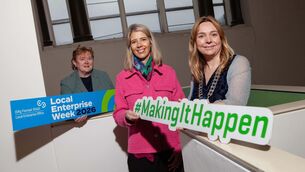Dr Michelle O'Driscoll: Marking your young child's milestones... the pros and cons

As a parent, particularly a first-time parent, there can be a huge pressure felt in relation to milestones. Picture: Stock
HAVE they walked yet? Are they crawling? Any sign of her reading? Wow, still no teeth?!

Dr Michelle O’Driscoll is a pharmacist, re searcher and founder of InTuition, a health and wellness education company. Her research lies in the area of mental health education, and through InTuition she delivers health promotion workshops to corporate and academic organisations nationally.







 App?
App?


